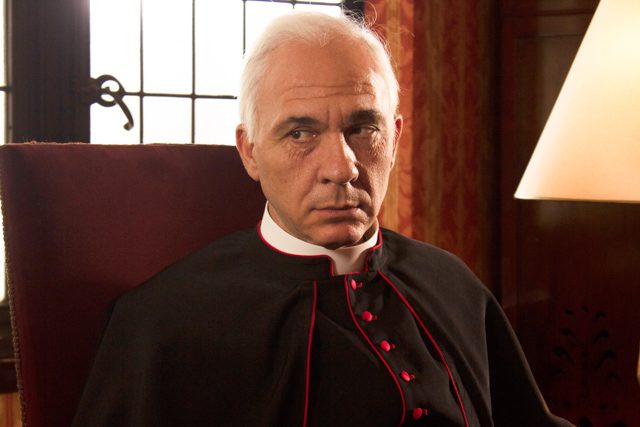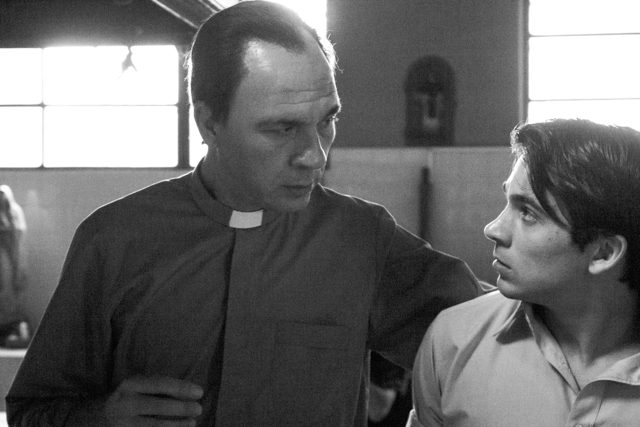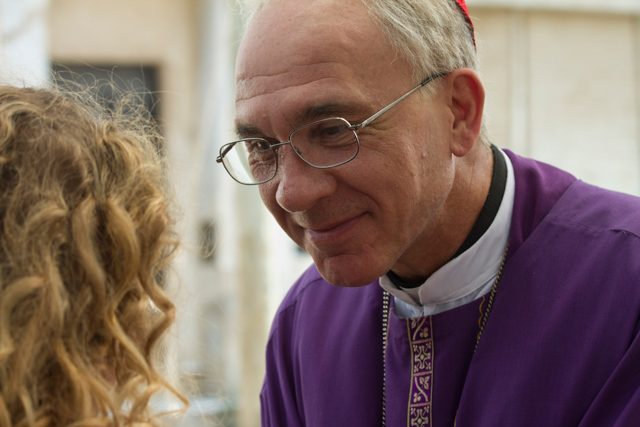SUMMARY
This is AI generated summarization, which may have errors. For context, always refer to the full article.

Beda Docampo Feijoo’s Papa Francisco: The Pope Francis Story (originally titled Francis: Pray for Me) is clearly not gunning for converts.
The film, based on Elisabetta Pique’s novel Pope Francis: Life and Revolution, is wise not to ruffle feathers and insists on portraying the celebrated pope (Dario Grandinetti), known as Father Jorge Bergoglio before adopting the name Francis, not as a creature of controversy but as an idol deserving of the veneration he has been getting since being seated as the Catholic Church’s leader. This isn’t exactly a bad thing and there is an audience for films like Papa Francisco.
Affecting story

It is genuinely affecting, not because Feijoo’s depiction results in extreme awe and fascination, but because Bergoglio’s story is truly moving.
From his roots as a teen whose decision to become a priest made his mother weep up to his being voted in a surprising turn of events as pontiff, Bergoglio’s story is a wellspring for inspiration and faith. The film dutifully edits Bergoglio’s life to showcase the traits that made him such a sensation in this contemporary world that vomits conservatism in favor of progressiveness.

Papa Francisco of course is careful in detailing the life of the pope. The anecdotes presented here are all nice and dandy, molding the character of Bergoglio as a human being who has charming imperfections but is wholly deserving to salvage the Catholic church from stagnating in its close-minded hypocrisy.
Sadly, Feijoo stops there. He limits his probe to what his audience wants, which is just a reaffirmation of what has already been said and written in popular media. He does not dare to ask questions or expand the personality of the pope to include more divisive aspects of his life, and is content in bluntly dramatizing events to create a tableau that is to be expected from a filmmaker of meager goals and intent.
Messy storytelling
Papa Francisco isn’t all about Bergoglio. The other main character is Ana (Silvia Abascal), an agnostic journalist who becomes Bergoglio’s friend during her first assignment at the Vatican. It is her story that frames the life of Bergoglio. Her research into the life of Bergoglio paves the way for the film to explore the past.
Unfortunately, the narrative device makes for a truly cumbersome experience. The film shifts from past to present without rhyme or reason. Moreover, the pope’s story is chopped into episodes, some of which are there to pepper the pope’s personality with more charm and charisma, which aren’t really necessary considering the pope already has too much good will, the extra effort feels like overkill.
Papa Francisco is a narrative mess. Feijoo simply can’t tie the stories of Bergoglio and Ana together to form a cohesive and logical whole. Their relationship, which ideally presents an image of a pope who embraces people of varying levels of religiosity and faith, is used more for convenience than to add layers to the film.

Ana’s story however opens up an aspect of the film that is worth mentioning. Papa Francisco isn’t shy in depicting the politics of the Vatican and through Ana’s role as a journalist, Feijoo is given the opportunity to depict the Catholic Church as seen from eyes unfazed by religious affinity.
The film showcases what goes behind the scenes during the papal election, specially detailing the media’s role in speculating and rumor mongering, which sort of goes against the spiritual quality of the papacy.
Catholic fodder

Papa Francisco is nothing more than Catholic fodder. It exists because of the fanfare Pope Francis has created through his unexpected ways of leading the Church. It should be treated only as such, because to do otherwise is to expect miracles out of a place where none can ever exist. – Rappler.com
 Francis Joseph Cruz litigates for a living and writes about cinema for fun. The first Filipino movie he saw in the theaters was Carlo J. Caparas’ ‘Tirad Pass.’ Since then, he’s been on a mission to find better memories with Philippine cinema. Profile photo by Fatcat Studios
Francis Joseph Cruz litigates for a living and writes about cinema for fun. The first Filipino movie he saw in the theaters was Carlo J. Caparas’ ‘Tirad Pass.’ Since then, he’s been on a mission to find better memories with Philippine cinema. Profile photo by Fatcat Studios
Add a comment
How does this make you feel?
There are no comments yet. Add your comment to start the conversation.